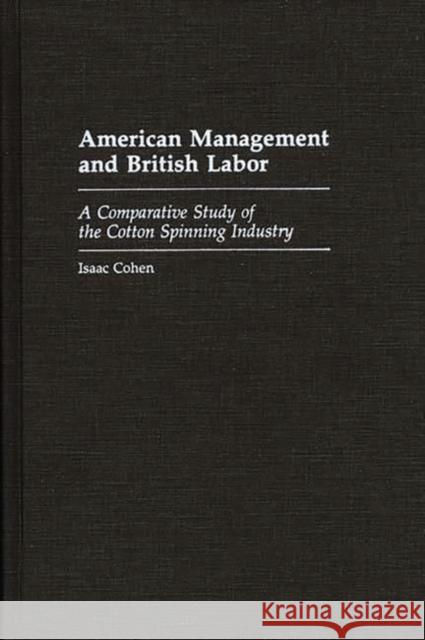American Management and British Labor: A Comparative Study of the Cotton Spinning Industry » książka
American Management and British Labor: A Comparative Study of the Cotton Spinning Industry
ISBN-13: 9780313267802 / Angielski / Twarda / 1990 / 256 str.
This book examines the early American cotton industry through British perspectives. The book covers the period from the 1780s to 1880, and concerns mainly Lancashire and New England, although there are many references to Scotland on the one hand, and to Pennsylvania and New York on the other. By concentrating on the spinning branch of the industry, which was far more affected by technological advances than the weaving branch during this period, Cohen is able to contrast different types of technologies, workers, markets, and goods. For example, the book contrasts how American industrialists acted differently than the British millowners and deals with the response of American factory workers to industrialization as distinct from the British operatives. Three interrelated themes emerge to define the theoretical subject matter of this study: mass production versus craft production, technology and organization, and craft control. Significantly, this study recognizes the often overlooked importance of mule spinning to the industry.
The volume examines the craft workers' rise to and struggle for power, the rise of the foreman, the role of unions, and an exploration of strikes--how they happened, why they happened, and what happened because of them. In the final chapter, the book expands its focus to examine the relationship of cotton to the coal, iron, and steel industries.











